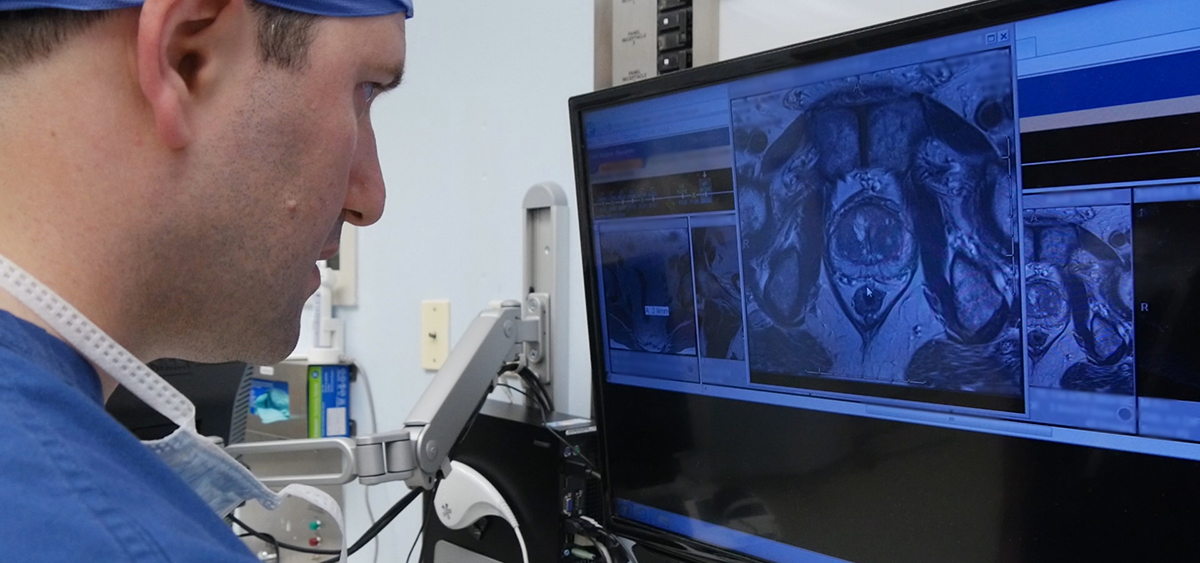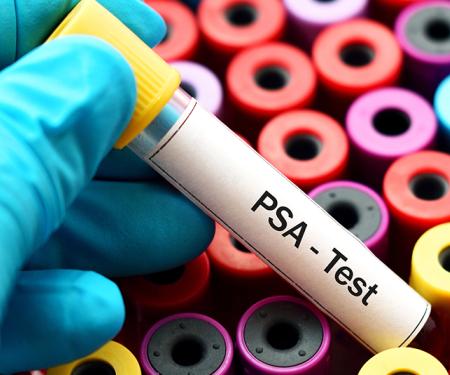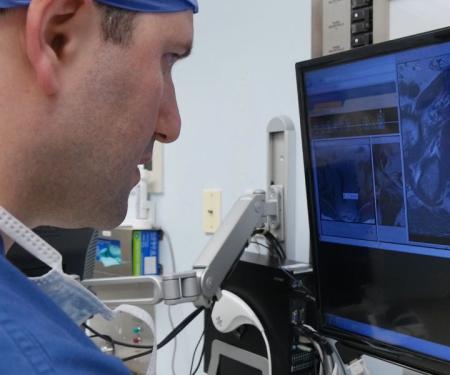Related Articles
00 / 00

Each patient’s individual situation will determine which method is most accurate and beneficial. Fox Chase was one of the first centers to use multiparametric MRI of the prostate to detect and monitor prostate cancer and is the only cancer center in the region offering the ExactVu™ micro-ultrasound system (which offers a more convenient and effective method for prostate cancer diagnosis).
The ExactVu™ micro-ultrasound technology merges the capabilities of MRI and a transrectal probe into a single device. During this outpatient test, a probe is placed in the rectum and allows the urologist to see the architecture of the prostate. This allows your care team to identify any concerning lesions and, if needed, take targeted biopsies.
Micro-ultrasound provides a much higher image resolution than typical ultrasound technology used for identifying prostate lesions. This helps physicians perform more targeted and accurate biopsies as well as prevents unnecessary biopsies by allowing for a complete visual assessment of the patient’s prostate.
While research has shown that micro-ultrasound and MRI offer the same diagnostic accuracy, micro-ultrasound is a better option for patients who are not eligible for an MRI (specifically if they are claustrophobic, have a pacemaker, or do not receive insurance coverage for the test).
Fox Chase has been at the forefront of fusion biopsy, where MRI images are coupled with live ultrasound images during the biopsy procedure. This state-of-the-art technology markedly improves biopsy accuracy. In fact, Fox Chase was the first in the region to use the UroNav fusion biopsy system. This process may find tumor sites that wouldn’t be noticed in a regular prostate biopsy. Fox Chase has extensive experience with this technique and is working to improve its effectiveness. Our faculty members also regularly present research on the subject at academic meetings. And, Fox Chase is one of the few hospitals in the country offering a new PET Scan service useful for monitoring recurrence.
Fox Chase Cancer Center also has expertise in transperineal biopsy techniques. We use a specially designed device that limits the number of biopsy needle insertion points to two—one for each side of the prostate—which further reduces the chance of infection and other side effects.
Even if you have a prostate tumor, many grow so slowly that they will never cause problems. If you have this type of tumor, you may elect for active surveillance rather than undergo further treatment at the time of diagnosis. MRI and fusion biopsy can help you and your doctor decide whether active surveillance makes sense for you.
Fox Chase Cancer Center is the first facility in the region to offer a new clinical service for prostate cancer patients who are concerned about recurrence. The procedure uses a new imaging agent (fluorine-18-labeled synthetic amino acid) for PET scans, which can reveal how tissue and organs are functioning. In men with suspected prostate cancer recurrence due to an elevated PSA (prostate specific antigen) level, this drug uses the elevated levels of amino acids in cancer cells to help identify the location of a recurrence. This test is now available as a clinical service at Fox Chase.










